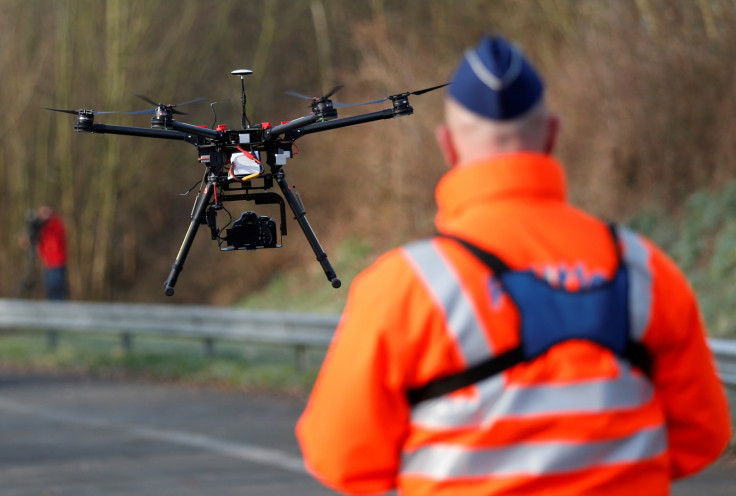The rise of the robocopter: Drones armed with weapons could be used by police in Connecticut
Republican lawmakers want weaponised drones to be banned, except when used by the police in emergencies.

Lawmakers in the US state of Connecticut are now considering whether they should allow local law enforcement to use drones armed with lethal weapons like guns.
A new bill on unmanned aerial vehicles (UAV) is being considered in the state that would prohibit anyone from using weaponised drones, but lawmakers are making the case that the police should be allowed to use the technology.
"Obviously this is for very limited circumstances. We can certainly envision some incident on some campus or someplace where someone is a rogue shooter or someone was kidnapped and you try to blow out a tyre," Republican State Senator John Kissel told the Associated Press.
Kissel is co-chairman of the state's Judiciary Committee, which approved the bill on Wednesday 29 March. Next, the bill has to be sent to the Connecticut House of Representatives, which is the lower house in the Connecticut General Assembly (CGA), and if it is passed, the 36 members of state's Senate will have to give their final consent.
Laws in the US are complicated and widely varying due to the complex nature of the state and federal governments, and the legislation surrounding drones is no exception.
Complicated and discordant drone laws
At the moment, five US states – Wisconsin, Nevada, Vermont, North Carolina and Oregon – have officially prohibited anyone from using weaponised drones, according to the latest report from the National Conference of State Legislatures in January. Three other states have passed legislation that specifically prohibits any law enforcement agencies from using UAVs that have weapons attached to them.
Then there's the state of Illinois, which prohibits the use of drones by the police, except for when there's a high risk of a terrorist attack or to locate a missing person, or if law enforcement is only using the drone for crime scene and traffic crash scene photography.
Only one state, North Dakota, allows the police to use drones with weapons and without a warrant, but they have to be non-lethal, so they can only be armed with tasers, tear gas or rubber bullets. The Federal Aviation Administration also has to be informed each time they take flight.
Privacy and warrants more important than weapons
For the most part, state governments currently seem far more concerned about drones being used to invade citizens' privacy and whether law enforcement has been given approval from a judge to use drones at all.
It is a class A misdemeanour in at least five states to use UAVs to photograph and conduct surveillance on private property, while 18 states have made it a law that all law enforcement agencies must obtain search warrants before they can use drones to conduct searches or for surveillance, unless the drone is used to protect an individual from imminent danger or in an emergency to prevent a suspect from destroying evidence.
"We would be setting a dangerous precedent," said David McGuire, executive director of Connecticut's branch of the American Civil Liberties Union (ACLU). "It is really concerning and outrageous that that's being considered in our state legislature. Lethal force raises this to a level of real heightened concern."
The National Conference of State Legislatures however feels that state legislature is making an impact in balancing regulation against the risks of drone use. A total of 31 states have so far enacted laws that address these issues, even though some of the laws are neutral towards UAVs.
Elsewhere, in Belgium police are trialling using drones to investigate car accidents on major highways, while in Spain, law enforcement are using drones for surveillance operations.
© Copyright IBTimes 2025. All rights reserved.






















